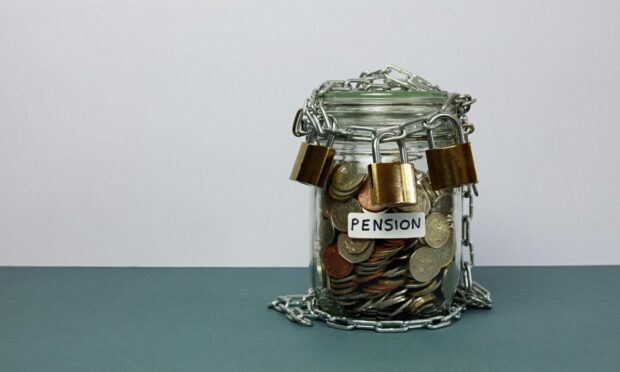As the rise in the cost of living returns to 40-year highs, retirees are heading for a bumper increase to their state pension next year after Prime Minister Liz Truss said the triple lock is being protected.
Here is a look at how the triple lock normally works and what difference it could make to pensioners.
As a pensioner I worry that Hunt may have his eyes on the pensions triple lock. #GeneralElection2022 #GeneralElectionNow
— Rob Pirrie (@AberdeenRob) October 17, 2022
What is the problem?
Inflation returned to a 40-year high in September according to the latest figures.
Rises in the cost of food was a major contributor, bringing the rate for September to 10.1%.
September’s inflation figure, at 10.1%, would normally be part of the calculation on how much pensioners receive, with fears this is no longer affordable for taxpayers to sustain.
Liz Truss insisted she is “completely committed” to the triple lock on state pensions just a day after Downing Street triggered a backlash by indicating it could be ditched.
The Prime Minister told that she and Chancellor Jeremy Hunt will be increasing pensions in line with inflation, which currently stands at more than 10%.
Ministers were considering ditching the manifesto promise due to the squeeze on the public finances in the wake of the mini-budget fiasco.
2019 Tory manifesto pledged to apply the Triple-lock on state pension
2022: Govt suspended it for 1yr, robbed pensioners of £5.4bn,
2 Oct 2022: Truss promised to apply the Triple-lock
Now reneging, cutting state pension in real terms.
Tell your MP to enforce triple-lock.— Prem Sikka (@premnsikka) October 19, 2022
If the triple lock had been abandoned it has been estimated pensioners would lose an estimated £22,000 over a number of years.
There are 981,399 Scots who receive the state pension.
What is the ‘triple lock’?
The triple lock was introduced to the UK state pension in 2010.
The three “locks” ensured state pension will increase by the greatest of these three measures:
- Average earnings
- Inflation, as measured by the Consumer Prices Index (CPI)
- 2.5%
This means that pensions paid will rise along with the earnings of those who are working or along with the cost of living as measured by September’s inflation figure.
Why would axing the triple lock be controversial?
It was a initially a Conservative manifesto pledge and its previous suspension had been viewed as a one-off due to the distorting impacts of the pandemic.
Ditching the promise would affect some of the most vulnerable people in society, many of whom live on fixed incomes, as high inflation wreaks havoc with household budgets.
However, some may make arguments around “intergenerational fairness”, with many working-age people receiving pay rises well below the current rate of inflation.
What impact would there be in cash terms if pensions rose in line with earnings next April instead of inflation?
If pensions rose by 5.5%, in line with earnings, the weekly new state pension would be £195.35 per week. But if it rose in line with Consumer Prices Index (CPI) inflation, at 10.1% it would be £8.50 per week higher, at £203.85.
This would add up to a difference of £442 over the course of a year in pensioners’ pockets.

Conversation